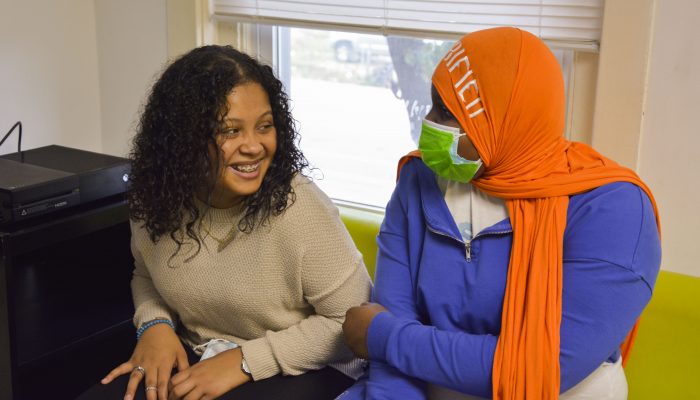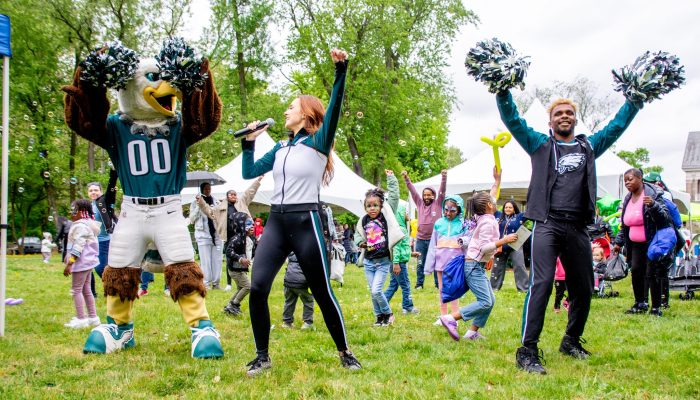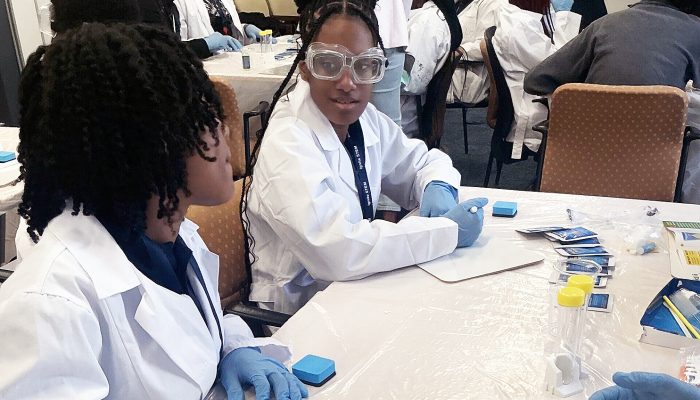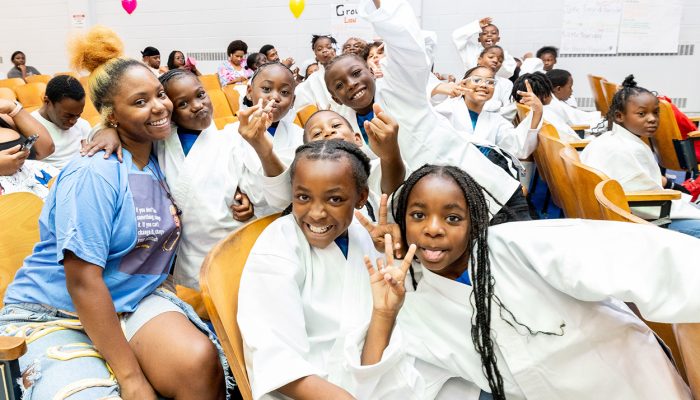“It helps having someone understand me…Coming here, it’s like a second family to me.”
– Aurealis, age 15, Intensive Prevention Services participant
About Intensive Prevention Services
The Philadelphia Department of Human Services (DHS) leads Intensive Prevention Services. We call it IPS. IPS is an after-school program. It’s for Philadelphia youth ages 10-19. There are seven sites citywide. Youth enroll in the program for different reasons. And each youth receives a custom plan. This plan helps them overcome their challenges. Challenges may be social, emotional, or academic. The program also helps youth improve relationships with loved ones. Learn how IPS helps high school sophomore Aurealis reach her own goals.
From Misunderstandings to Bridging the Gap
High school sophomore Aurealis and her mother don’t always get along have had a history of conflict. Aurealis felt her mother expected too much and was too overprotective. As a result, her grades suffered. Then, Aurealis’s school counselor referred her to IPS.
IPS offers several resources and services for families. Aurealis works with a case manager. This staff member is like a mediator. They help Aurealis and her mother better understand one another. And the duo also works with a family therapist. Tutoring and academic support are also available.
When talking about family interactions, Aurealis says they’ve learned to communicate better, “We meet in the middle, but we bump heads sometimes, which is totally normal.” Thankfully, IPS helps Aurealis through conflict resolution. And the program gives her the tools she needs to express herself in a healthy way. Grateful that she has found a haven, she’ll add “But it helps having someone understand me and not just the adult side of the problem.”
Tapping into IPS resources has proven successful. Aurelias attends IPS five days per week, and the program is a place she can turn to when she needs help. Now, Aurealis’s mother better understands her daughter’s perspective. While their relationship has improved, it remains a work in progress. And Aurealis has raised her grades.
Using New Experiences as a Catalyst for Change
IPS also aims to prevent youth from entering the juvenile justice system. It operates daily after-school. These are hours when youth are more likely to engage in high-risk behaviors. And some of these actions result in a court case. IPS exposes youth to new experiences to help them thrive. Some extracurriculars include engaging workshops and field trips.
Aurealis learned how to play chess and took up kickboxing when she joined IPS. She has also expanded her social circle and met new friends. She enjoys spending time with the “Girls’ Group.” And when you ask what she likes about it, she’ll say “We talk about girl stuff, and we all understand each other.”
Joining an IPS Program is Simple
DHS partners with several provider agencies to run IPS. This makes it easy for youth and families to access their services. Recently, IPS expanded to seven locations. The program’s newest site is in Southwest Philadelphia.
“The seventh location expands our commitment to young people. It provides another safe place within their communities,” says Damon Trent. Trent is the Juvenile Justice Services Administrator at DHS.
Families and schools refer youth to the program. The court system and the police department can, too. Youth can also self-refer.
Everyone can use a little extra support. And IPS provides the support young people need. And it helps keep their lives moving in a positive direction.
“I learn a lot from peers and get support away from home,” says Aurealis. “I can talk to someone here [that] I trust to give me advice.”




